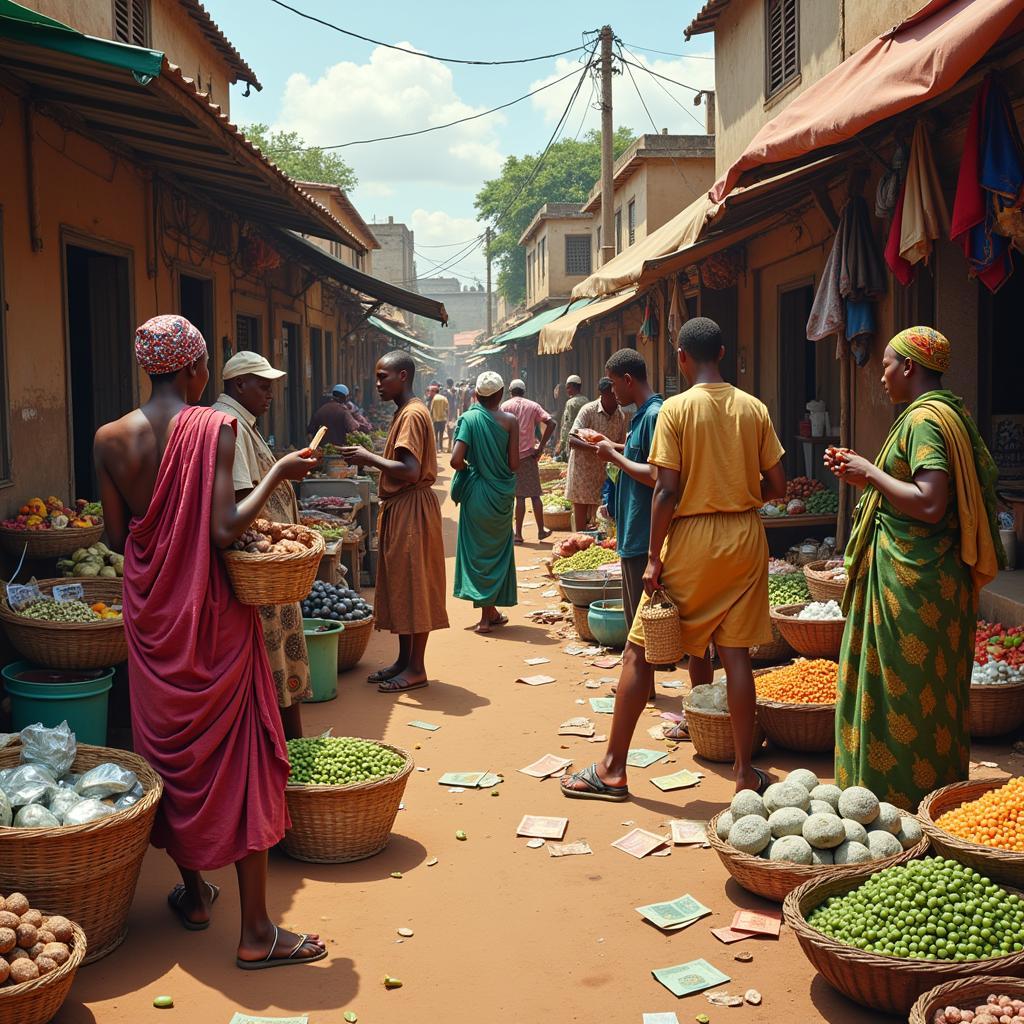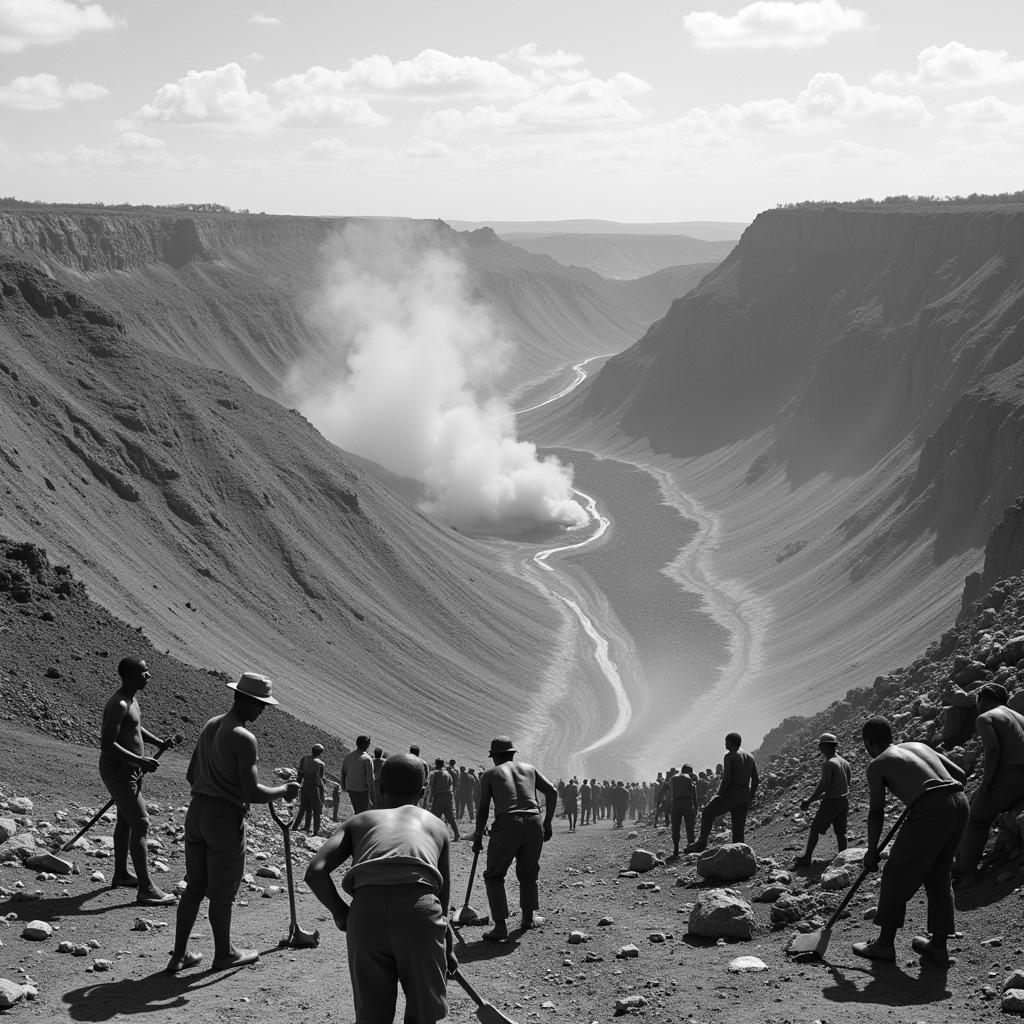African Community Tattoos: A Deep Dive into the Symbolism and Stories Behind the Ink
The practice of tattooing is deeply ingrained in the cultural fabric of many African communities, serving as a powerful form of artistic expression, storytelling, and identity. From intricate patterns passed down through generations to bold modern designs, African tattoos are a testament to the continent’s rich history, diverse traditions, and vibrant artistic heritage. This article delves into the captivating world of African Community Tattoos, exploring their meaning, significance, and the stories they tell.
The Origins and Significance of African Community Tattoos
African tattoos have a long and fascinating history, dating back thousands of years. Archaeological evidence suggests that tattooing was practiced in Africa as early as the Neolithic period, with the oldest known tattooed remains discovered in Egypt, dating back to around 3300 BC. Over the centuries, tattooing has evolved into a diverse and intricate art form, with distinct styles and meanings unique to different tribes and regions.
In many African communities, tattoos are more than just decorative elements; they are a fundamental aspect of identity, spirituality, and social status. They serve as visual markers that distinguish individuals, families, and tribes, often symbolizing lineage, clan affiliation, achievements, and spiritual beliefs. Some cultures believe that tattoos can protect individuals from evil spirits or bring them good fortune, while others use them to mark rites of passage or commemorate important life events.
Exploring Different Styles and Meanings of African Tattoos
The diversity of African tattoo styles is as breathtaking as the continent itself. Each tribe and region has developed its own distinctive aesthetic and symbolism, influenced by local traditions, mythology, and environmental factors. Here are some examples of common African tattoo styles and their associated meanings:
-
The Himba Tribe (Namibia): The Himba people of Namibia are known for their intricate body art, which is primarily applied to women using a mixture of charcoal, butterfat, and ochre. The patterns often include geometric shapes, stripes, and dots that symbolize fertility, beauty, and protection.
-
The Maasai Tribe (Kenya and Tanzania): Maasai warriors are famous for their bold and striking tattoos, which are usually applied to the face, chest, and arms. These tattoos are often geometric patterns that represent their age, social status, and bravery.
-
The Yoruba Tribe (Nigeria): The Yoruba people of Nigeria have a rich tradition of body art, including tattoos that are often associated with specific deities or spiritual beliefs. They are known for their intricate designs, which can feature animal motifs, symbols, and religious figures.
-
The Dogon Tribe (Mali): The Dogon tribe of Mali is renowned for their intricate and spiritual tattoos, which are believed to represent the connection between the human world and the cosmos. Their designs often feature stars, planets, and other celestial bodies, symbolizing spiritual power and wisdom.
Modern Interpretations and the Revival of African Tattooing
In recent years, there has been a growing interest in traditional African tattooing, with artists and enthusiasts from around the world seeking to rediscover and celebrate the continent’s unique artistic heritage. This revival has led to a fascinating blend of tradition and modernity, with contemporary artists drawing inspiration from ancient styles while incorporating their own unique perspectives and interpretations.
“I’m inspired by the deep connection that African tattooing has to spirituality and the beauty of the human form,” says renowned African tattoo artist, Amani “The Lioness” Mwenda. “My goal is to create art that honors the legacy of my ancestors while also pushing the boundaries of contemporary tattooing.”
The Importance of Respect and Cultural Awareness
As the popularity of African tattoos continues to rise, it is essential to approach them with respect and cultural sensitivity. Tattoos should never be seen as mere fashion statements or fleeting trends, but as powerful symbols of identity, history, and belief. If you are considering getting an African tattoo, take the time to learn about its cultural significance, connect with a reputable artist who specializes in traditional African tattooing, and ensure that your design is authentic and meaningful.
Conclusion
African community tattoos are a captivating blend of art, symbolism, and storytelling. They offer a glimpse into the rich cultural tapestry of the continent, providing insights into its history, beliefs, and traditions. By understanding the meaning and significance behind these intricate designs, we can appreciate the depth and beauty of African art and the stories it tells.
FAQ
Q: What is the difference between African traditional tattoos and modern African tattoos?
A: Traditional African tattoos are often deeply rooted in cultural traditions and carry symbolic meanings that are specific to a particular tribe or region. Modern African tattoos draw inspiration from traditional styles but often incorporate contemporary designs and interpretations.
Q: Are African tattoos painful?
A: The pain associated with tattoos varies depending on the individual’s pain tolerance, the size and location of the tattoo, and the technique used by the artist. Traditional African tattooing methods often involve hand-tapped needles, which can be more painful than modern tattooing techniques.
Q: How can I find a reputable African tattoo artist?
A: To find a reputable African tattoo artist, it is important to do your research, look for artists with experience in traditional African styles, and read reviews from other clients. You can also consult with local tattoo shops or cultural organizations to get recommendations.
Q: Can I get an African tattoo if I am not of African descent?
A: It is important to approach cultural tattoos with respect and sensitivity. While anyone can appreciate the beauty of African tattooing, it is essential to understand the cultural context and ensure that you are not appropriating or misrepresenting the designs.
Q: Are there any restrictions on getting specific types of African tattoos?
A: Some tribes and communities have specific rules and regulations surrounding tattooing, particularly with regard to designs and who is allowed to get them. It is important to research and understand these cultural norms before considering getting an African tattoo.

